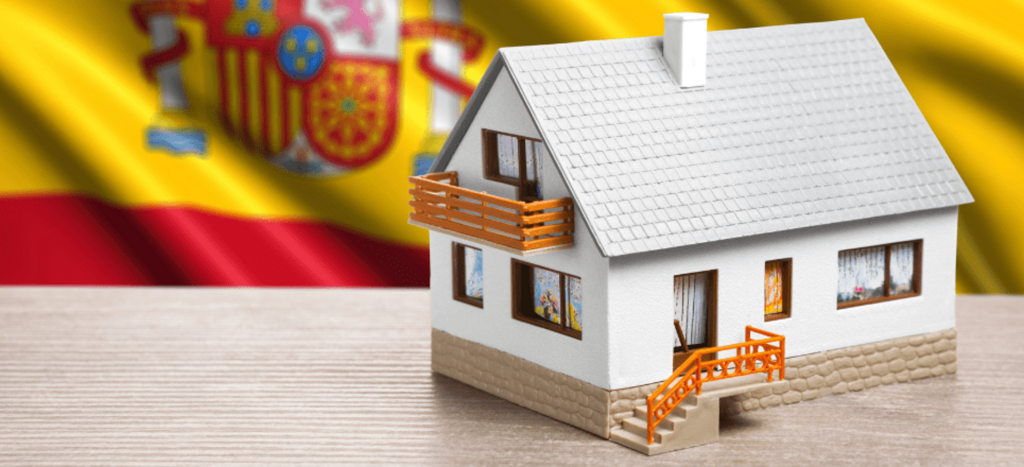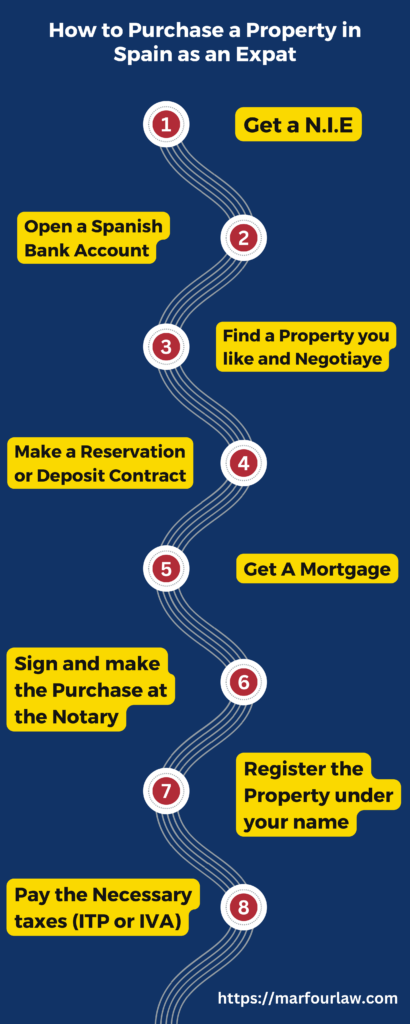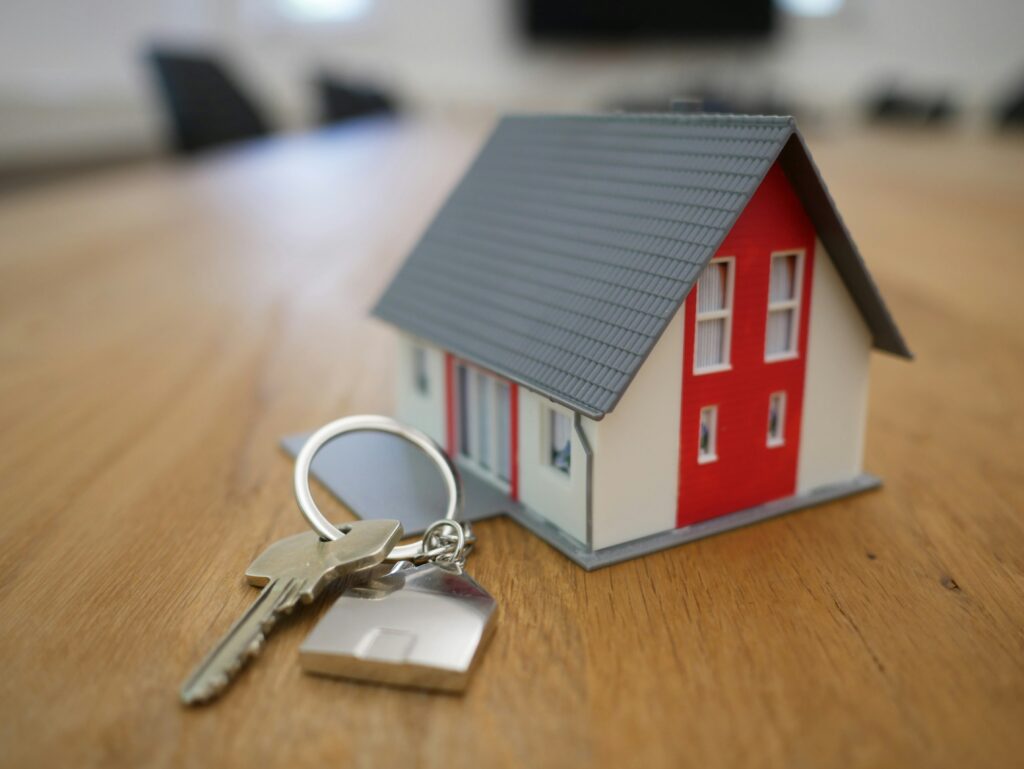Buying Property in Spain
Are you thinking of buying property in Spain? Whether you’re considering buying a place in Spain for a vacation retreat or a permanent home, the process of home purchase in Spain can be both exciting and daunting.

Purchasing property in Spain involves understanding the legalities, taxes, and practicalities of buying a house in Spain as a foreigner.
From researching the best locations to navigating the steps of how to purchase a property in Spain, it’s crucial to be well-informed. Let’s explore the essentials to ensure your home purchase in Spain is smooth and successful.
Discovering the Spanish Property Market: What You Need to Know
When considering buying a place in Spain, it’s important to understand the current state of the property market. Spain offers a wide range of options, from charming countryside homes to modern city apartments. The market can vary greatly depending on the region, so doing some research is key to finding the perfect spot for your home purchase in Spain.
Purchasing property in Spain involves several steps, but with the right information, the process can be straightforward.
Start by setting a budget and deciding on your preferred location. Whether you’re interested in a coastal villa or a city apartment, knowing where to look will make buying a house in Spain much easier and more enjoyable. For those new to the Spanish property market, learning how to purchase a property in Spain is crucial.
This includes understanding legal requirements, such as obtaining a NIE (Foreigner’s Identification Number) and being aware of any taxes and fees. Being prepared will help ensure a smooth and stress-free home purchase in Spain. Finally, it’s important to seek advice from local experts who can guide you through the specifics of buying a house in Spain.
Real estate agents and legal professionals can offer invaluable assistance, helping you navigate the market with confidence. With the right support, your dream of purchasing property in Spain can become a reality.
Can Foreigners Really Buy a House in Spain? Absolutely!
Yes, foreigners can definitely buy a house in Spain! The country is open and welcoming to international buyers, making the process of buying a place in Spain straightforward and accessible.
Whether you’re interested in purchasing a home in Spain for a vacation home or as a permanent residence, the Spanish property market offers a range of options. Understanding how to purchase a property in Spain involves a few key steps, but rest assured, buying a house in Spain is an achievable dream for non-residents.

Easy Steps to Get a NIE for EU Citizens
For EU citizens, obtaining a NIE (Número de Identificación de Extranjero) is an essential and simple process. This identification number is crucial for purchasing property in Spain and for other legal and financial transactions.
- What is a NIE and Why Do You Need It? A NIE is a unique identification number assigned to foreigners in Spain. It is required for all major transactions, including buying a house in Spain, opening a bank account, and paying taxes. Having an NIE ensures that your home purchase in Spain is legally recognized.
- Documents Required for EU Citizens: To get your NIE, you’ll need your passport, a completed application form (EX-15), and proof of your reason for requesting the NIE, such as a property purchase agreement. Make sure to bring copies of all documents along with the originals.
- Where to Apply for a NIE: You can apply for your NIE at the nearest police station in Spain or a Spanish consulate in your home country. It’s often advisable to make an appointment in advance to avoid long waits. The process typically involves submitting your documents, filling out forms, and paying a small fee.
- Timeline and Costs: The NIE application process for EU citizens is usually quick and often completed within a few days to a couple of weeks. The cost is minimal, typically around 10-15 euros.
Non-EU Citizens: How to Secure Your NIE Hassle-Free
Non-EU citizens can also obtain an NIE for purchasing property in Spain with a straightforward process, though there are a few additional steps compared to EU citizens.
- Understanding the NIE for Non-EU Citizens: Like EU citizens, non-EU citizens need an NIE for major transactions such as buying a house in Spain. This number is critical for ensuring your home purchase in Spain is legally sound and recognized.
- Required Documentation for Non-EU Citizens: Non-EU citizens will need their passport, a completed NIE application form (EX-15), and proof of their reason for requesting the NIE, such as a property purchase contract. Additional documents, like a visa or residency permit, may also be required.
- Where and How to Apply: Non-EU citizens can apply for an NIE at Spanish consulates abroad or designated police stations in Spain. It’s recommended to book an appointment ahead of time. You’ll need to submit your documents, fill out forms, and pay a processing fee.
- Processing Time and Fees: The processing time for a NIE for non-EU citizens can take a bit longer, usually ranging from a few weeks to a couple of months. The fee for non-EU citizens is generally the same as for EU citizens, around 10-15 euros, but this can vary slightly depending on the consulate or police station.
Non-Residents Buying Property in Spain: Your Complete Guide
Are you a non-resident dreaming of owning property in Spain? This comprehensive guide is tailored just for you. Whether you’re seeking a holiday home or an investment opportunity, navigating the Spanish property market as a non-resident can be both exciting and daunting.
This guide will walk you through everything you need to know, from legal procedures to practical tips, ensuring a smooth and informed property purchase process in Spain.
This guide covers the complete process of buying property in Spain as a non-resident:
- Understanding the Spanish property market dynamics and popular regions.
- Legal considerations such as obtaining a Foreigner’s Identity Number (NIE) and property ownership rights.
- Step-by-step purchase process, from property research to signing the final deed at the notary’s office.
- Financial aspects, including taxes applicable to non-residents and financing options.
- Practical advice on conducting due diligence, choosing a reputable real estate agent, and navigating cultural considerations.
- Post-purchase responsibilities like property registration and ongoing maintenance.
By following this guide, you’ll be equipped with the knowledge and tools necessary to make informed decisions and navigate the complexities of buying property in Spain as a non-resident effectively.
How to Purchase a Property in Spain as an Expat: The Ultimate Guide
Buying a house in Spain is an exciting endeavor for expats looking to make Spain their new home or invest in property. Here’s a comprehensive guide to navigating the process smoothly.

1. Pre-Purchase Steps: Understanding Legal Procedures
Before buying a house in Spain, expats must first obtain a NIE (Número de Identificación de Extranjero). This unique identification number is crucial for foreigners engaging in financial transactions, including purchasing property in Spain. It serves as proof of legal status and is required by Spanish authorities to process property transactions smoothly.
Obtaining the NIE is an essential initial step when considering a home purchase in Spain, ensuring compliance with local laws and facilitating the subsequent stages of the purchase process.
- Applying for the NIE: To apply for the NIE, expats must submit specific documentation, such as a completed application form, passport, and proof of property purchase intention (such as a sales agreement). The application is typically processed through the local Foreigner’s Office (Oficina de Extranjería) or Spanish consulate, where applicants are issued the NIE upon approval.
- Understanding Legal Requirements: In addition to the NIE, expats should familiarize themselves with other legal requirements involved in purchasing property in Spain. These may include understanding local zoning regulations, verifying property ownership through a property registry search (Nota Simple), and ensuring compliance with tax obligations related to property transactions.
2. The Purchase Moment: Signing the Public Deed
The pivotal moment in the process of buying a house in Spain is the signing of the public deed (escritura pública). This document formalizes the property transaction and transfers ownership from the seller to the buyer.
The signing takes place before a notary public, who ensures the legality and authenticity of the transaction. It is essential to review the deed thoroughly before signing to verify the property’s details, purchase price, and any conditions or obligations attached to the sale.
- Notary Appointment and Deed Review: Before the scheduled appointment with the notary, both the buyer and seller should review the draft of the public deed prepared by the seller’s legal representative. This review ensures that all terms and conditions agreed upon during negotiations are accurately reflected in the final document. It is advisable to seek legal counsel to clarify any legal jargon or complex clauses before the signing date.
- Completion of the Transaction: During the signing ceremony, the notary public verifies the identities of both parties, ensures their legal capacity to enter into the transaction, and confirms the details of the property being transferred. Once the deed is signed, the notary registers it with the Land Registry (Registro de la Propiedad), officially documenting the buyer’s ownership rights over the property.
The completion of this step marks the legal transfer of property ownership and finalizes the purchase process for expats buying a house in Spain.
3 Post-Purchase Essentials: Registering Your New Home
After signing the public deed, expats must register their newly acquired property with the Land Registry (Registro de la Propiedad). Property registration is a critical step in the home purchase process in Spain, as it provides legal certainty and confirms the buyer’s rights as the rightful owner.
The registration process involves submitting the signed public deed and relevant documentation to the Land Registry office responsible for the property’s location.
- Submission of Documents and Registration Process: To register the property, expats must submit the original signed public deed, along with a certified copy, to the Land Registry office. Additional documentation may include proof of payment of property transfer taxes, proof of compliance with local zoning regulations, and other legal requirements specific to the property’s location. The Land Registry verifies the submitted documents, updates its records accordingly, and issues an official registration certificate confirming the buyer’s ownership rights.
- Benefits of Property Registration: Registering the property offers several benefits to expats buying a house in Spain. It provides legal protection against third-party claims on the property, establishes the buyer’s ownership rights in public records, and facilitates future property transactions, such as selling or mortgaging the property. Property registration also enhances the property’s marketability and ensures transparency in real estate transactions, contributing to a secure and hassle-free homeownership experience for expats in Spain.
By understanding and following these detailed steps and subheadings, expats can confidently and effectively navigate the process of buying property in Spain, ensuring a smooth transition into their new home abroad.
How Long Does It Really Take to Buy a House in Spain? A Timeline Breakdown
Understanding the timeline is crucial to planning your move effectively when considering buying a house in Spain. The process typically begins with researching and selecting the perfect place in Spain that suits your needs and preferences for a home purchase. This initial stage, often termed “buying a place in Spain,” involves browsing listings, visiting properties, and narrowing down your choices.
Once you’ve decided on a property, the actual process of purchasing property in Spain begins. This phase, known as “home purchase Spain,” includes several important steps that contribute to the overall timeline. First, you’ll need to secure financing if required and engage in negotiations with the seller.
This step ensures that you’re well-prepared financially and legally for the purchase. Next comes “purchasing property in Spain,” which involves formalizing the agreement with a reservation contract and then a deposit contract (Contrato de Arras). These legal procedures are crucial for protecting both the buyer and seller’s interests and typically require careful consideration and legal guidance.
The final step, “buying a house in Spain,” culminates in signing the public deed of sale before a notary and registering the property in your name. This phase is essential for completing the transfer of ownership and ensuring legal compliance. Throughout “How to Purchase a Property in Spain,” the timeline can vary based on factors such as property location, financing arrangements, and legal procedures. To navigate these stages efficiently and effectively, it’s advisable to work closely with real estate agents and legal experts who specialize in Spanish property law.
Taxes When Buying or Selling Property in Spain: What Foreigners Need to Know
When considering buying a place in Spain, it’s essential to grasp the tax implications to ensure a smooth home purchase process.
Here’s a comprehensive look at the key taxes you need to understand:
1. Property Transfer Tax (ITP): Your Must-Know Facts
Property Transfer Tax (Impuesto sobre Transmisiones Patrimoniales or ITP) is a significant tax imposed on the transfer of resale properties in Spain.
The rate of ITP varies depending on the autonomous community where the property is located. Generally, it ranges from 6% to 10% of the property’s purchase price. This tax applies to individuals purchasing an existing property rather than a newly built one.
2. All About Value-Added Tax (IVA) on Spanish Properties
Value-Added Tax (Impuesto sobre el Valor Añadido or IVA) is applicable when purchasing newly constructed residential or commercial properties in Spain.
The current standard rate of IVA for residential properties is 10%. Unlike ITP, IVA is included in the purchase price and paid directly to the developer or seller. It’s important to note that this tax may vary based on specific circumstances, so consulting with a tax advisor is recommended to understand the exact implications.
3. Capital Gains Tax: Selling Your House in Spain
When selling a house in Spain, Capital Gains Tax (Impuesto sobre Incremento de Patrimonio de la Venta de un Inmueble or Plusvalía) is levied on the profit made from the sale.
For non-residents, the current tax rate is typically 19% of the profit gained from the sale. It’s calculated based on the difference between the purchase price and the sale price, adjusted for inflation and any eligible expenses related to the property. It’s crucial to factor in this tax when planning your property investment or sale in Spain. Understanding these taxes is fundamental for anyone interested in purchasing property in Spain.
Whether you are buying a house in Spain as a foreigner, considering a holiday home, or investing in real estate, being well-informed about these tax obligations will help you navigate the process effectively and make informed financial decisions.
Buying a House in Spain with Cash: Is It Right for You?
Buying a house in Spain outright with cash can offer several advantages and considerations for prospective homeowners. It’s a straightforward approach that skips the complexities of mortgage applications and interest rates, offering immediate ownership and potentially stronger negotiating power.

Understanding the Advantages of Buying with Cash
Purchasing property in Spain without a mortgage means avoiding interest payments and mortgage fees. It can also streamline the buying process, making transactions quicker and less dependent on bank approvals.
Considerations Before Buying with Cash
While buying a house in Spain outright can be advantageous, it’s essential to consider liquidity and potential missed investment opportunities. Assessing your financial goals and stability is crucial before committing to a cash purchase.
Assessing Your Financial Position
Evaluate your financial resources and stability to determine if buying a house in Spain with cash aligns with your long-term financial plans. Consider factors like cash flow, future investment opportunities, and potential tax implications.
Your Guide to Getting a Mortgage in Spain
For those who prefer to finance their home purchase in Spain, securing a mortgage can be a viable option. Here’s a comprehensive guide to navigating the mortgage process in Spain.
- Understanding Mortgage Options in Spain: Explore the types of mortgages available in Spain, including fixed-rate and variable-rate options. Compare interest rates, repayment terms, and eligibility requirements to find the best fit for your financial situation.
- Steps to Secure a Mortgage in Spain: Learn the step-by-step process of applying for a mortgage in Spain, from gathering the necessary documents to submitting your application. Understanding requirements such as proof of income and residency status is essential for a smooth application process.
- Navigating the Mortgage Approval Process: Once you’ve applied for a mortgage, navigate the approval process with insights into what banks consider during their assessment. Be prepared for potential delays and understand the importance of legal and property appraisals in securing your mortgage.
The Best Places to Buy Property in Spain: Top Regions Revealed
When considering buying a house in Spain, selecting the right region is crucial. Each area offers unique advantages based on your preferences and lifestyle.
Coastal regions like the Costa del Sol and Costa Blanca are popular for their Mediterranean climate and beautiful beaches, making them ideal for buying a place in Spain as a holiday home or retirement destination. For those seeking cultural richness and vibrant city life, cities like Barcelona and Madrid provide excellent options for home purchase in Spain, offering cosmopolitan amenities and historical charm.
Exploring lesser-known regions such as Galicia or Valencia can also reveal hidden gems with affordable properties and authentic Spanish living experiences.
Buying a House in Spain for Citizenship: What You Should Know
Under certain conditions, buying a house in Spain can be a pathway to Spanish citizenship. This opportunity is available to investors who meet specific investment thresholds, typically through property purchases exceeding a specified value.
Understanding these requirements is crucial when purchasing property in Spain for citizenship purposes. The process involves accreditation of your property purchase, which confirms your eligibility for residency and eventual citizenship. Whether your purchase is formalized or pending, navigating these steps involves legal considerations and documentation to ensure compliance with Spanish immigration laws.
How to Accredit Your Property Purchase
Accrediting your property purchase in Spain involves proving your investment meets the criteria for residency and citizenship applications. This process verifies your commitment to the Spanish economy through real estate investment.
- Formalized Purchase: Next Steps: After formalizing your property purchase, gather all necessary documentation and submit it for verification. This typically includes proof of property ownership and financial investment.
- Pending Purchase: What to Do: If your property purchase is pending formalization, ensure you have started the application process and meet all requirements for residency and citizenship by investment.These insights help navigate the complexities of buying a house in Spain for citizenship, ensuring your investment aligns with legal and strategic objectives.
Avoid These Pitfalls When Buying a House in Spain
Buying a house in Spain is an exciting venture, but it’s crucial to navigate potential pitfalls to ensure a smooth home purchase process. Here’s a comprehensive guide to help you steer clear of common pitfalls:

Researching the Right Location: Buying a Place in Spain
Choosing the right location is key when buying a place in Spain. Consider factors like proximity to amenities, accessibility, and local property market trends. It’s essential to visit the area in person to get a feel for the neighborhood and ensure it meets your lifestyle needs.
Understanding Legalities: Home Purchase Spain
Navigating the legal aspects of home purchase in Spain is vital. Ensure you understand the buying process, including legal requirements, taxes, and fees involved. Hiring a reputable real estate lawyer can help you navigate the complexities and avoid legal pitfalls.
Budgeting Wisely: Purchasing Property in Spain
Before buying a house in Spain, establish a realistic budget that includes not just the purchase price but also taxes, fees, and ongoing maintenance costs. Factor in currency exchange rates if you’re financing your purchase with foreign currency. Stick to your budget to avoid financial strain in the long run.
Property Inspection: Buying a House in Spain
Always conduct a thorough inspection of the property you intend to purchase. Look for any structural issues, maintenance needs, or potential hidden costs. Hiring a qualified inspector can uncover hidden problems and give you peace of mind.
Negotiating the Purchase: How to Purchase a Property in Spain
Negotiation is a common practice when buying a house in Spain. Be prepared to negotiate not only the price but also the terms and conditions of the sale. Understanding local market conditions and having a clear idea of your priorities will empower you in negotiations.
By carefully considering these factors and avoiding common pitfalls, you can make informed decisions and ensure a successful home purchase in Spain that meets your needs and expectations.
Why a Real Estate Lawyer Is Key to a Smooth Property Purchase in Spain
When it comes to buying a house in Spain, engaging a real estate lawyer is essential for a seamless experience. A real estate lawyer specializing in home purchases in Spain, like those at Marfour Law Firm, can provide invaluable expertise and guidance throughout the entire process.
They handle crucial tasks such as reviewing contracts, ensuring legal compliance, and conducting due diligence on the property. This professional oversight helps protect your interests and ensures that all legal requirements are met, from verifying property titles to overseeing the completion of necessary paperwork.
Legal Expertise and Compliance
Marfour Law Firm’s real estate lawyers ensure that all legal requirements are met when purchasing property in Spain.
They understand the intricacies of Spanish property law and ensure that every step of your transaction complies with local regulations. This helps prevent legal issues that could arise from non-compliance.
Due Diligence and Property Verification
Marfour’s lawyers are critical in verifying property titles and conducting thorough checks. They perform extensive due diligence to confirm that the property you intend to purchase is free of legal issues and encumbrances. This includes checking for any debts or claims against the property and ensuring a clear title.
Contract Review and Negotiation
Marfour Law Firm’s experts review all contracts related to the property purchase. They meticulously go through each detail to safeguard your interests and negotiate terms to your advantage. Their negotiation skills help in getting favorable terms and conditions, ensuring a smooth and fair transaction.
Tax Implications
Understanding and clarifying the tax obligations related to purchasing property in Spain can be complex. Marfour’s lawyers offer detailed advice on the tax implications of your property purchase, including any taxes due at the time of sale and ongoing property taxes.
This ensures that you are fully aware of all financial responsibilities associated with your new property.By choosing Marfour Law Firm, you benefit from comprehensive services that cover all aspects of buying property in Spain.
Their expertise and detailed attention to each step of the process ensure a smooth and secure transaction, giving you peace of mind throughout your property purchase journey.
FAQs
These FAQs aim to provide clarity and essential information for anyone considering buying property in Spain, ensuring a smooth and well-informed home purchase process.
Can foreigners buy property in Spain?
Yes, foreigners can buy property in Spain without any restrictions. Whether you’re from another EU country or a non-EU country, you can legally purchase property in Spain.
What are the steps involved in purchasing property in Spain?
Buying a house in Spain involves several key steps:
- Obtaining a NIE (Número de Identificación de Extranjero) if you’re a non-resident.
- Finding a property and negotiating the price.
- Signing a reservation contract and a deposit contract (Contrato de Arras).
- Securing financing if needed.
- Signing the public deed of sale before a notary.
- Registering the property in the Land Registry.
What taxes and fees should I expect when buying property in Spain?
When purchasing property in Spain, you should budget for:
- Property Transfer Tax (ITP) or Value-added Tax (IVA), depending on the type of property.
- Notary fees and registration fees.
- Legal fees, including those for a real estate lawyer.
Are there any specific considerations for non-residents buying property in Spain?
Non-residents should be aware of:
- The need for a Spanish bank account to handle financial transactions.
- Potential currency exchange rates if transferring funds from abroad.
- Understanding local property laws and regulations.
How long does it take to complete a property purchase in Spain?
The timeline for buying a house in Spain can vary. On average, it takes between one to three months from signing the reservation contract to completing the purchase at the notary. Factors such as financing approval, legal checks, and administrative processes can affect this timeline.
Conclusion
In conclusion, buying property in Spain can be a rewarding investment if approached with careful planning and consideration. It’s important to thoroughly research the market, understand the legal requirements, and engage with reputable local professionals such as real estate agents and lawyers.
Spain offers diverse property options, from coastal retreats to urban apartments, catering to various preferences and budgets. Ensuring clear financial planning and understanding tax implications will help make the purchasing process smoother. Ultimately, with due diligence, buying property in Spain can be a great step towards owning a beautiful home or making a sound investment.
Experts in Buying Properties In Spain
Our lawyers can buy property in Spain on your behalf with the power of attorney.
Thanks to our real estate lawyers in Barcelona and Madrid, our clients can purchase properties they desire from anywhere in the world, without the need to be physically present in Spain.
purchased Properties
assisted clients
%
satisfied clients
How can I buy a house in Spain?
1. Signing Power of Attorney, obtaining a Spanish NIE number, and opening a bank account:
First, you will need to sign a power of attorney over to your lawyer.
The client will need a Spanish NIE number (identification number) from the tax agency to proceed with buying the property. At Marfour, our real estate lawyers will also open a bank account in Spain for you.
2. Due diligences:
It is very important to undertake a legal check of the property situation, especially checking the urban location, the technical inspection of buildings, and assessing the status of any charges.
3. Signature of Land Contract (Contrato de Arras):
This agreement is signed between the buyer and the seller without the need of a notary. At this stage, your real estate lawyer will also make sure that everything is ready for the quick and easy signature of the final purchase deed at the notary.
4. Purchase Deed – Finalization of the process of buying a property in Spain:
The deed is signed in front of a notary, and immediately afterward, your lawyer in Spain will proceed with the registration of the new ownership at the land registry (Registro de la Propiedad).
What does this service include?
- Draft a Power of Attorney.
- Open a Spanish bank account.
- Obtain your Spanish NIE number.
- Draft the land contract agreement and the final purchase deed.
- Represent you at the notary and signature of the deed.
- Registration of the deed at the register of property.
- Obtain the ownership certificate.
testimonials
They bought our house in our behalf and then apply for the Golden Visa. We would not hesitate to recommend them.
Our lawyers were very friendly and extremely professional from the initial contact we had, right through to the end successful result.
![]()
![]()
MARFOUR IS READY TO BUY YOUR PROPERTY IN SPAIN ON YOUR BEHALF
Contact us, and Marfour International Law Firm will assist you in buying a property in Spain. One of our specialized English-speaking lawyers will contact you immediately to advise you in the best way possible. Do not hesitate to send us your enquiry.

